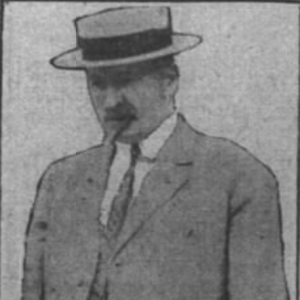
(Feb. 16, 1869-Sept. 17, 1915). The son of Indianapolis Mayor , Harry Wallace was a lifelong resident of the city. Out of economic necessity, he left school and worked four years as a teamster for the city and private contractors. He also joined the police force and won a reputation in the district as the “fighting patrolman.”
A member of the department’s first bicycle squad, Wallace rose first to sergeant and then detective with the support of Democratic mayor , an old friend of his father. He resigned in 1903 to become deputy to Marion County Recorder . Elected county recorder in 1906, he served from 1907 to 1910.
Wallace’s public life reached its apex during the city’s crisis of late 1913. Appointed city controller in the Shank administration, Wallace became mayor, as stipulated in the Charter of 1891, when Shank, having failed to mediate a teamster strike successfully, resigned on November 28 (see ). The strike of more than 3,000 teamsters, following the during a trolley strike a few weeks earlier, raised fears of widespread disorder. Wallace immediately moved the mayor’s office to police headquarters, taking direct control of the police, again as permitted under the charter. He banned groups of more than three men from the streets, swore in 250 special policemen—prominent business and professional men armed with revolvers—and announced he would enforce the law on all classes impartially. While there was some violence, the strike ended a week later, and the city returned to normal.
For many years, Wallace served as chairman of the southside’s 10th Ward and as a two-term Republican county chairman. He was said to be able to call more men in the city by name than anyone else. He had intended to run for mayor at the next election but suffered a fatal heart attack at age 46.

Help improve this entry
Contribute information, offer corrections, suggest images.
You can also recommend new entries related to this topic.